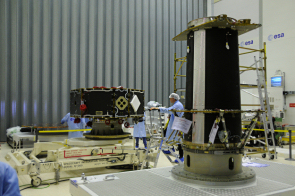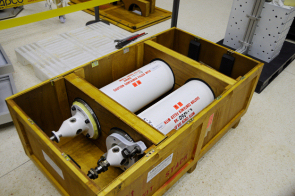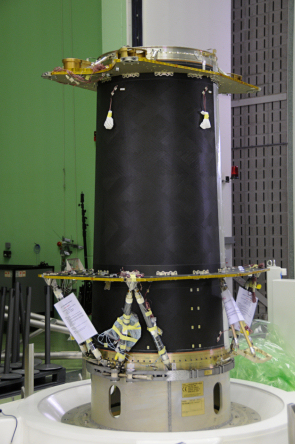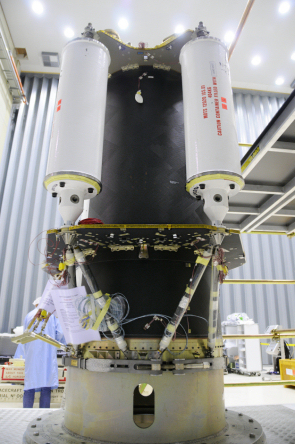LISA Pathfinder modules ready for acoustic tests
1 September 2008
The LISA Pathfinder science and propulsion modules are now ready for acoustic testing in the Large European Acoustic Facility (LEAF) at ESTEC, The Netherlands. In the four weeks since the modules arrived at ESTEC engineers have been busy preparing the units for this first system test.
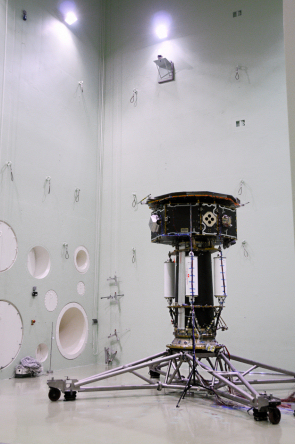 |
|
The LISA Pathfinder science and propulsion modules in the acoustic chamber. Credit: ESA/Astrium |
For these acoustic tests a spare flight model of the science module has been equipped with representative models of the micro-propulsion thrusters, the flight model of the solar array and a number of dummy masses (which take the place of many of the standard system units).
A model of the LISA Pathfinder Technology Package (LTP), comprising the structural model of the inertial sensor and several dummy electronic boxes, has been installed in the science module. The sensor has previously been used during mechanical stand-alone tests. The forthcoming acoustic tests will provide a representative measure of the acoustic input effects in a number of locations inside the sensor.
A number of measurement devices (accelerometers and strain gauges) have been attached to both the science and propulsion modules, and to the LTP, to record the loads during the test sequences. The red and blue cables attaching these devices are clearly visible in many of the photographs displayed on this page.
Two European micro-propulsion (FEEP) technologies (needle indium thrusters and slit caesium thrusters) are currently being developed for LISA Pathfinder. Both types have been mounted on the science module for this series of tests.
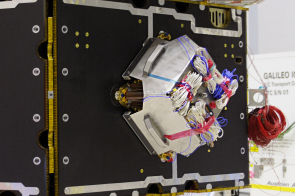 |
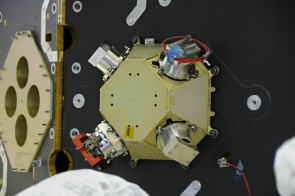 |
| A needle indium thruster unit installed on the science module. Credit: ESA/Astrium | A slit caesium thruster unit attached to the science module. Credit: ESA/Astrium |
The flight model of the solar array, weighing 21 kg, was secured to the science module at eight points, using eight bolts and bars, to maintain a separation of 8 cm between the surface of the science module and the solar array.
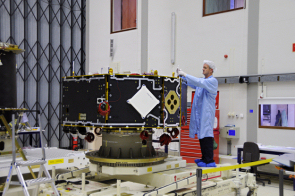 |
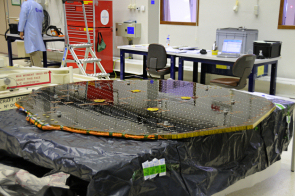 |
|
The science module is prepared for the integration of the solar array. Credit: ESA/Astrium |
The LISA Pathfinder solar array. Credit: ESA/Astrium |
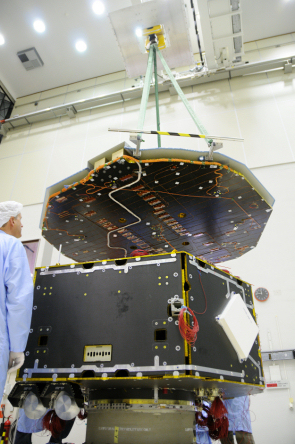 |
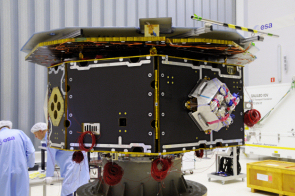 |
| The solar array is lowered onto the science module (left) and finally, secured to the science module (above). Credit: ESA/Astrium |
In parallel to the science module preparations the propulsion module was also readied for the tests with the attachment of measuring devices and four dummy mass propulsion tanks.
The final step in the preparation sequence was to mate the science and propulsion modules and transfer the assembled unit to the acoustic chamber of the LEAF.

